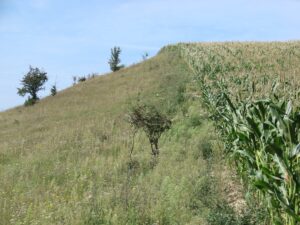Swedish NGOs urge European Parliament to radically improve the Renewable Energy Directive
By Sini Eräjää, EU bioenergy policy officer at BirdLife Europe & Central Asia.
In an open letter, Swedish environmental NGOs urge Members of the European Parliament to account for the full emissions and environmental impacts of biofuels in the Renewable Energy Directive. The current proposal leads to increased harvests as trees from natural forests are burned as biofuel. Instead of decreasing the global emissions of the greenhouse gases, they will increase.
Next week, the Members of the European Parliament (MEPs) in the Environment, Public Health and Food Safety (ENVI) Committee will vote on the EU Renewable Energy Directive. The intention of the Directive is to reduce the emissions of greenhouse gases. However, the Swedish NGOs demand radical improvements in the regulation on biofuels. They ask the MEPs not to be misled by the Swedish and Finnish forest industries which are strong lobbyists. In their open letter, they write:
“In Sweden, natural and semi-natural forests are systematically clear-cut and replaced by even-aged conifer tree plantations, poor of species, to acquire alleged sustainable wood products and bioenergy. Still, Sweden promotes itself as a leader when it comes to sustainable forestry and bioeconomy. The Swedish and Finnish Forest Industries are strong lobbyists and use the climate as a pretext to increase their forest harvest, production and economic rates.”
The letter contains demands for an improved Directive. For example, the NGOs want to phase out food-based biofuels like palm oil, soya and rapeseed by 2030. According to Transport & Environment (2017), emissions from these vegetable oils are usually higher than from fossil fuels. Additionally, the cultivation of biofuels requires large areas of land. For example, rainforest is cut down in order to cultivate oil palms and soya. As a consequence, greenhouse gas emissions increase when forests, which sequester carbon, are harvested, while valuable habitats for animals and plants disappear.
The NGOs urge the MEPs to account for the indirect emissions from land use in the greenhouse gas calculations of biofuels. They also encourage the MEPs to support incentives for renewable electrification of transport, principally powered by solar. Moreover, they support no other forest product than forest residues and waste for bioenergy, stating that inefficient electricity production from biomass should not be supported.
The following Swedish NGOs have signed the open letter to the Members of the European Parliament: Protect the Forest, Climate Action Sweden, Friends of the Earth Sweden, and PUSH Sweden.
Contact:
Kristina Bäck, Spokesperson, Protect the Forest, +46 (0)70 443 28 19
Jonas Bane, Spokesperson, Climate Action Sweden, +46 (0)70 736 69 32
Banner photo: © Enfore





